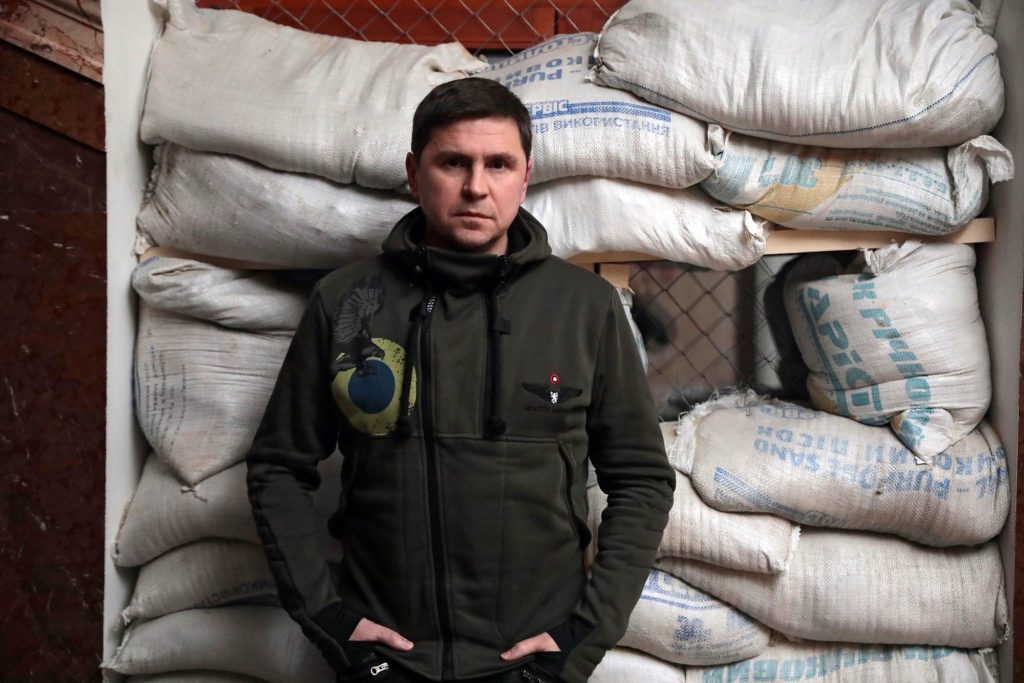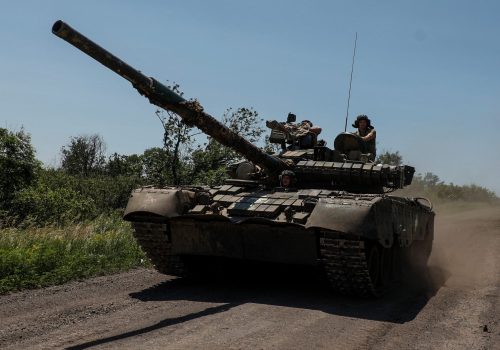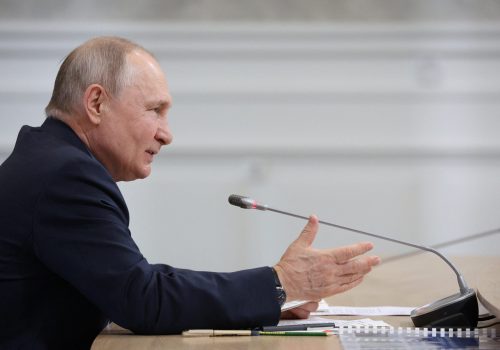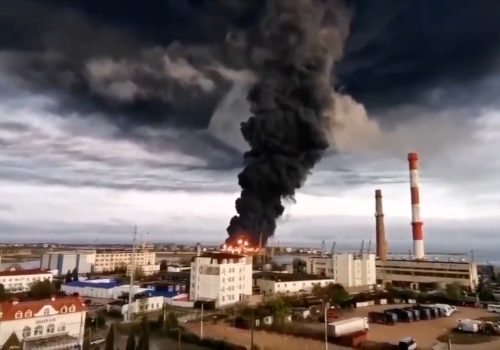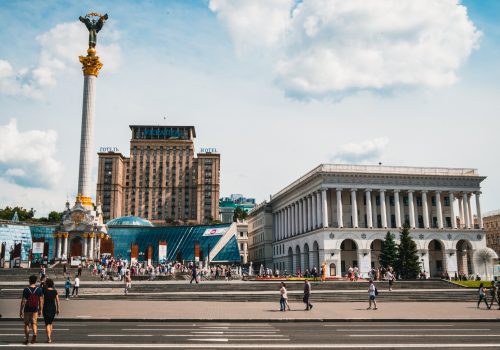
Zelenskyy advisor: Defeat in Ukraine will spark collapse of Putin regime

How will the Russian invasion of Ukraine end? With Ukraine’s much hyped summer counteroffensive making slow progress, some international observers are questioning whether either side is capable of achieving a military breakthrough and arguing that a compromise peace with the Kremlin is inevitable. Ukrainian presidential advisor Mykhailo Podolyak does not agree. Like the vast majority of Ukrainians, he is convinced the war will only end when Russia is defeated. Based on recent developments inside Russia, Podolyak also believes victory may be closer than many currently imagine.
Fifty-one-year-old Mykhailo Podolyak enjoys a higher profile than the average political advisor. A former journalist who joined Ukraine’s Office of the President in 2020, he was one of four key figures who appeared alongside Ukrainian President Volodymyr Zelenskyy in an iconic selfie video recorded in central Kyiv on the second day of the Russian invasion that signaled Ukraine’s intention to stand and fight. He has remained highly visible ever since, regularly engaging with the international media and sharing his often outspoken daily insights in both English and Ukrainian with more than 1.4 million Twitter followers. By some counts, Podolyak is the second most quoted official in Ukraine.
When we meet on a sweltering early July afternoon at the Presidential Administration in the heart of Kyiv’s heavily fortified government district, Podolyak is still digesting the implications of Russia’s Wagner mutiny, which had briefly caused the watching world to hold its collective breath just weeks earlier. He sees the putsch as proof of Russia’s internal weakness and says it signals the inevitability of change in the country. “The Wagner revolt revealed there is nothing behind the Kremlin’s propaganda facade. Everyone has now seen for themselves that Putin is an empty vessel. The emperor has no clothes. He doesn’t control the situation inside Russia and is not at all popular. Ordinary Russians are still afraid to say they are against Putin, but as soon as Wagner began to rise up, the public cheered. Meanwhile, nobody showed any interest in defending the Putin regime.”
Crucially, Podolyak is confident the aborted uprising has caused irreparable damage to Putin’s reputation among the Russian elite. For years, the Kremlin has preached the mantra that Russia’s future depends on Putin. After the Wagner uprising, many within the country’s establishment are no longer convinced. “They now realize Putin is incapable of performing the key functions expected of any Russian ruler,” says Podolyak. “He has lost the authority to act as the ultimate arbiter of domestic disputes, and cannot serve as guarantor of the elite’s international interests. Most of all, he showed cowardice. When the mutiny began, he disappeared from view. This is simply unforgivable in Russia’s authoritarian political culture. A weak czar will not survive long.”
Podolyak insists these revelations came as no surprise to him personally. On the contrary, he says they tally closely with Ukraine’s own intelligence assessments of Russia’s internal political climate. Nevertheless, he acknowledges that the Wagner mutiny has provided welcome confirmation of Putin’s vulnerability, and claims it may offer the best indication yet of how the Russian invasion of Ukraine is likely to develop in the months ahead.
Subscribe to UkraineAlert
As the world watches the Russian invasion of Ukraine unfold, UkraineAlert delivers the best Atlantic Council expert insight and analysis on Ukraine twice a week directly to your inbox.
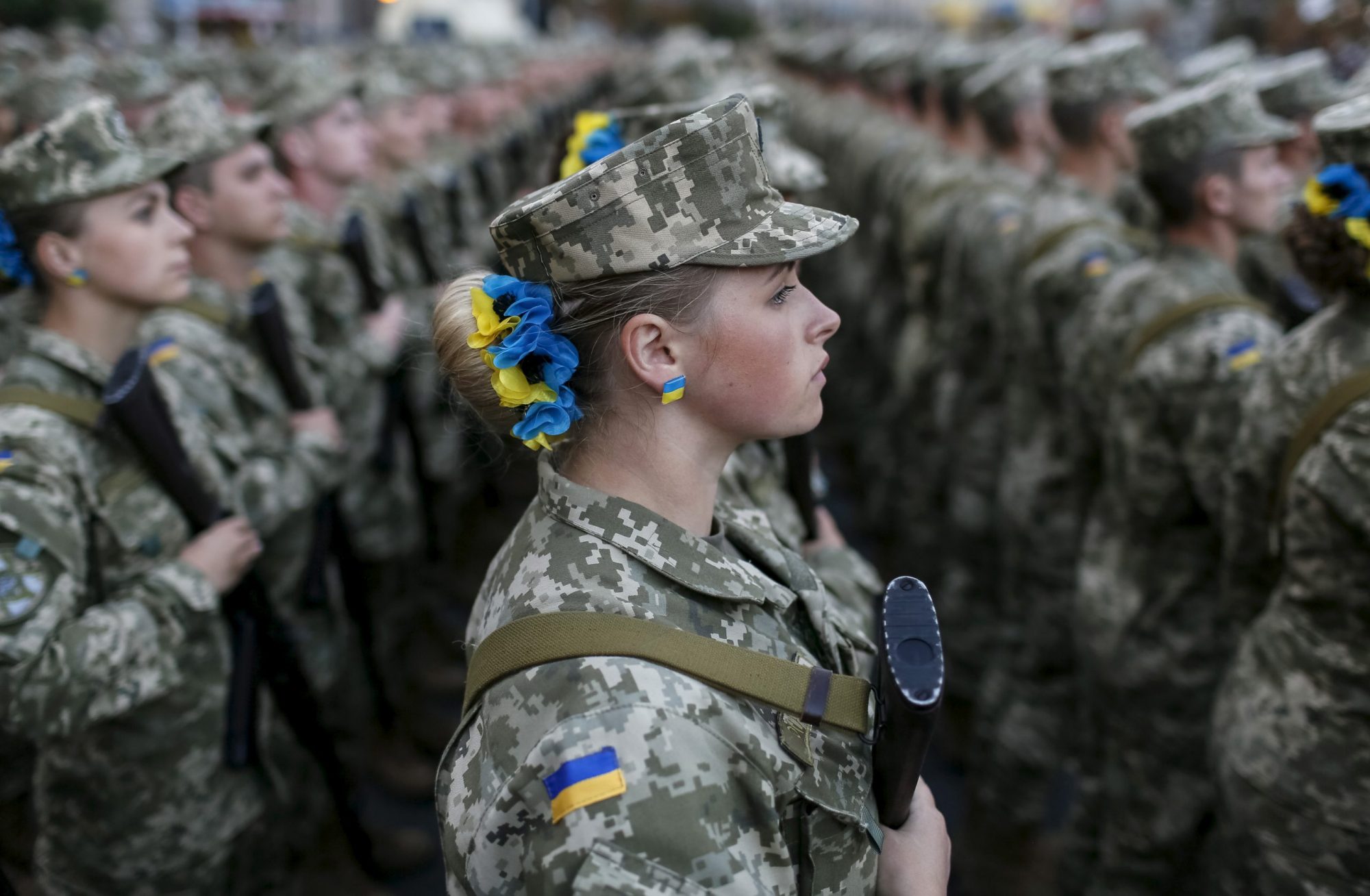
-
-
-
This field is for validation purposes and should be left unchanged.
In the aftermath of the failed Wagner uprising, it is now painfully apparent to Putin that he cannot take the loyalty of the Russian army for granted. His own forces largely stood aside as Wagner troops seized Rostov-on-Don and marched on Moscow, with individual commanders reportedly choosing not to oppose the rebellion amid paralysis in the Kremlin. A number of high-ranking Russian generals have since been dismissed or have otherwise disappeared from view, leading to speculation over deepening divisions within the upper echelons of Putin’s military.
Morale has been further undermined by the Kremlin’s failure to punish any Wagner commanders for their part in the putsch, despite the fact that a number of Russian servicemen were killed. While Putin initially vowed to crush the rebellion, Wagner chief Yevgeniy Prigozhin and other mutiny leaders remain at liberty and were even invited to the Kremlin for a personal meeting with the diminished Russian dictator.
After such a humiliation, Podolyak believes it is only a matter of time before other members of the Russian establishment challenge Putin’s authority. He now expects battlefield defeats in Ukraine to serve as the catalyst for Russia’s next domestic power struggle.
“Ukraine may not actually need to fight for every single inch of occupied territory,” says Podolyak. “If Russia suffers two or three more significant military defeats in Ukraine, this will decisively demoralize Putin’s invasion force. They will then flee back across the border with weapons in hand, bringing the war home to Russia itself. As internal fighting between rival groups unfolds in Russia, Ukraine will be able to reestablish full control over the country’s internationally recognized borders. Eventually, we will likely witness mass protests in Moscow and the fall of the Putin regime.”
Eurasia Center events

This vision of an impending Russian collapse is certainly compelling from a Ukrainian perspective. However, there is already considerable alarm in the West over the prospect of chaos engulfing the Russian Federation, with many fearful of what a decisive Russian defeat in Ukraine might mean for international security. Podolyak acknowledges these concerns and speaks of the need to safeguard Russia’s huge nuclear arsenal. At the same time, he warns against efforts to artificially prolong the existence of the Putin regime.
“Russia will not cease to exist entirely, but it should be clear to everyone by now that Russia cannot continue to exist in its current form,” says Podolyak. “Just like the USSR before it, Putin’s Russia has accumulated too many critical mistakes. Instead of trying to prop up the failed current regime, Russia must enter into a period of internal transformation. It is entirely possible that some ethnic minority regions within the Russian Federation will seek to break away, but that will not be critical for the overall survival of Russia as a state.”
Podolyak argues that while a decisive Russian defeat in Ukraine will create a range of geopolitical headaches, the alternative is infinitely worse. He is particularly scathing of all those calling for a negotiated settlement, noting that efforts to impose a premature peace would be seen in Moscow as an invitation for more war. “Any attempt to reach some kind of compromise with Putin will mean the end of Ukrainian statehood. This much is perfectly clear to us. Nor will Ukrainians be the only victims. Unless Russia is defeated, Putin’s invasion will be vindicated and his entire regime will be revitalized. The consequences for international security will be disastrous. Why voluntarily make the world a more dangerous and unstable place?”
For Podolyak, talk of peace deals and potential compromises reflects the international community’s fundamental failure to understand the imperial nature of modern Russia. He speaks bitterly about the human cost of widespread misconceptions regarding Russia’s abusive relationship with its neighbors, and notes that many in the West have traditionally been far too eager to accept Russia-centric perspectives that downplay or deny the sovereignty of countries like Ukraine.
Despite this obvious frustration, Podolyak is cautiously optimistic about future trends. He predicts the current war will prove a watershed moment for international audiences, leading to tectonic shifts in the way the nations of the former Soviet world are perceived. “Ukrainians are currently demonstrating our agency and confirming our sovereignty on the battlefield,” he says. “We can already see how outside perceptions of Ukraine are changing. When Russia is defeated, we will finally witness an historic change in international attitudes toward the entire region.”
Such a reevaluation is long overdue, Podolyak insists. He says the West must accept a degree of responsibility for enabling the consolidation of the Putin regime through decades of lucrative economic cooperation and legitimizing diplomatic engagement. Many were all too happy to turn a blind eye as the Kremlin used a combination of bribery, bullying, and deception to expand its international influence, setting the stage for escalating acts of aggression that culminated in the February 2022 invasion of Ukraine.
After the horrors of the past eighteen months, Podolyak argues that there are no longer any excuses for failing to recognize Russia’s imperialistic identity or the Kremlin’s expansionist agenda. Instead, the time has come to radically rethink perceptions of Russia, Ukraine, and the role of both countries in European history. “We are now witnessing the culmination of processes that began in 1991,” he says. “Everyone used to believe the USSR disintegrated more or less peacefully. But in reality, the process is not yet over. Today’s war is the last chapter in the collapse of the Soviet Union and the Russian Empire.”
Peter Dickinson is editor of the Atlantic Council’s UkraineAlert service.
Further reading
The views expressed in UkraineAlert are solely those of the authors and do not necessarily reflect the views of the Atlantic Council, its staff, or its supporters.

The Eurasia Center’s mission is to enhance transatlantic cooperation in promoting stability, democratic values and prosperity in Eurasia, from Eastern Europe and Turkey in the West to the Caucasus, Russia and Central Asia in the East.
Follow us on social media
and support our work
Image: Ukrainian presidential adviser Mykhailo Podolyak pictured in Kyiv. (via Reuters)
